A Systemic Issue that Hits
Home for Our Newest Filly at Horse Guard
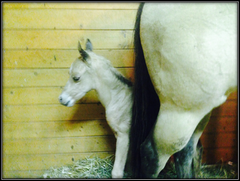
We at Horse Guard had anxiously been awaiting the arrival of our second foal this year. For weeks we had a foaling stall prepared for her. It had a mixture of straw and shavings for Tumbleweed (a first-time mom) in hopes of a comfortable birth and a healthy foal. When her teats started to "wax" up we moved her into the stall. She was checked every couple of hours. This went on for three days. When birth time came, she let herself out into the run. She gave birth in the dirt of the run. When Del came down at 4 AM on Friday June 12th, there lay a beautiful buckskin filly.
Although small, the filly was healthy. She awkwardly learned to stand, wobbled around nudging mom, and eventually nursed. The foal seemed like the typical newborn that morning, sleeping and waking up only to nurse. Later that afternoon, we noticed that she was rolling and acting uncomfortable. Our neighboring equine veterinarian came and checked her out. All of her vitals were normal. However, she was noticeably in pain. He concluded that her meconium (first manure) was causing her to lightly colic. He administered Banamine, a laxative, and irrigated the rectum to help her pass the meconium. That evening she seemed content.
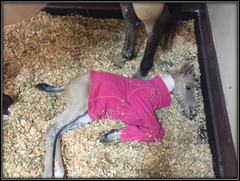
Saturday afternoon, she was not doing very well. We decided to take her to Bend Equine for tests. After running a series of tests on her, they discovered that she had systemic septicemia. Systemic septicemia is an infection of the blood caused by bacteria transferring through the intestinal lining into the bloodstream. It is very serious. Septicemia is one of the most common problems in equine neonates, and accounts for almost 1/3 of all foal deaths.
Luckily, the mare's colostrum (first milk) had an adequate amount of IgG (immunoglobins) that the filly consumed. The consumption of colostrum is critical to the health of a foal. The "open" gut allows the immunoglobins from the colostrum to pass through the gut wall. The downside is that harmful bacteria can also pass through into the blood as well. This makes them very susceptible to disease.
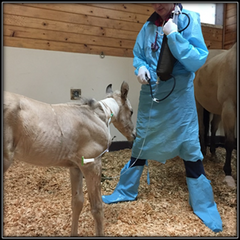
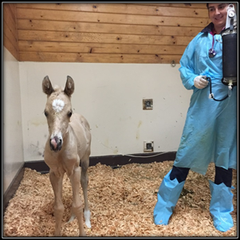
For this reason, it is important that you have the foal born in the cleanest environment possible. Disinfect the foaling stall prior to use, and keep it picked. It has been suggested by some to go as far as cleaning the mare's udder with soap and water thoroughly and milk 2-4 ounces from the mare, and bottle feeding the foal to ensure they receive all of the immunoglobins from the colostrum, to not risk contracting bacteria from the mare's contaminated udder during udder seeking.
We were lucky with this filly. She received great care at Bend Equine. Consuming adequate levels of immunoglobins helped to her to defend off the bacteria that had entered her system. She is still fighting clostridial diarrhea, therefore receiving IVs every four hours to prevent her from dehydration. We hope she is strong enough to come home tomorrow (June 19th). She is a fighter and after she kicks this, she has a bright future ahead of her.



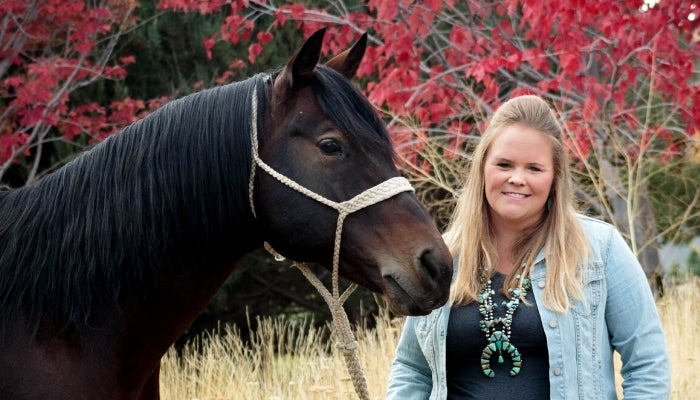


Leave a comment (all fields required)